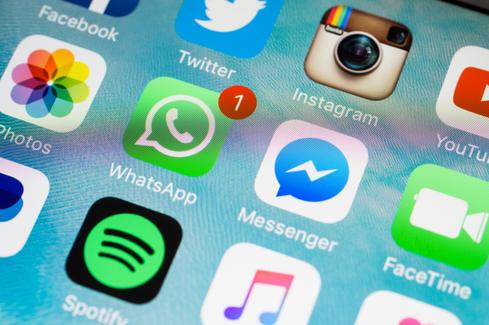WhatsApp Hastening Demise Of BlackBerry
Popular messaging service WhatsApp is going to stop supporting all BlackBerry platforms by the end of the year, making the fading OS even more irrelevant than it already is.


MWC 2016 Best In Show: Galaxy S7, LG's G5, More
MWC 2016 Best In Show: Galaxy S7, LG's G5, More (Click image for larger view and slideshow.)
WhatsApp said it plans to drop support for a handful of aging platforms before 2016 comes to a close, including all versions of BlackBerry OS. The move highlights one of the core problems facing any platform not made by Apple or Google -- app availability.
Canning support for older operating systems and hardware is part of the natural life cycle of consumer electronics. Apple and Google are both guilty of obsolescing iPhones and Android handsets that can't handle the newest versions of iOS and Android. Microsoft and BlackBerry, too, have done it to their own products. Device and operating system makers generally cease supporting older gear because there are too few users, it's not worth the money, or they'd rather see customers upgrade to the latest and greatest stuff.
The story is altogether different when partners and third-party app makers drop support for existing platforms.
Apps are the lifeblood of today's mobile operating systems. Without apps, platforms cannot survive. Apple and Google are lucky; iOS and Android each have well more than one million apps cluttering the iTunes App Store and Google Play Store, respectively. That wasn't always the story.
"When we started WhatsApp in 2009, people's use of mobile devices looked very different from today," explained WhatsApp in a blog post. "The Apple App Store was only a few months old. About 70% of smartphones sold at the time had operating systems offered by BlackBerry and Nokia. Mobile operating systems offered by Google, Apple and Microsoft -- which account for 99.5% of sales today -- were on less than 25% of mobile devices sold at the time."
In other words, WhatsApp cut its teeth on apps for once-popular platforms such as Nokia's Symbian and, of course, the formerly named RIM's BlackBerry OS.
Fast forward to 2016, and WhatsApp's plan to drop support for older operating systems makes sense from a business perspective. The company said it wants to focus efforts moving forward on the operating systems that the majority of people actually use today. Sadly, not enough people use any version of BlackBerry OS to warrant keeping the app alive.
BlackBerry 10 is a relatively new platform in the grand scheme of things, though BlackBerry's handset sales figures show the operating system is already on life support. The most recent quarterly report from BlackBerry points to shipments of only 700,000 units. BlackBerry CEO John S. Chen has said numerous times that if BlackBerry can't make a profit selling hardware, it will stop selling hardware altogether. That possibility seems more real as each quarter rolls around.
Some might argue that losing WhatsApp doesn't matter because BlackBerry owners rely on BBM, not WhatsApp, for their messaging needs. That's probably true, but at about 100 million users, BBM's installed base (which includes Android and iOS) is far smaller than WhatsApp's global installed base of 1 billion.
[Can BlackBerry be saved? Here are eight ideas to consider.]
BlackBerry isn't the only one losing access to WhatsApp. WhatsApp also plans to drop support for Android 2.1 and Android 2.2 from Google, Symbian S60 and S40 from Nokia, and Windows Phone 7.1 from Microsoft. These are all outdated platforms, and WhatsApp rightly suggests that anyone using them should upgrade.
"These mobile devices have been an important part of our story," said WhatsApp, but "they don't offer the kind of capabilities we need to expand our app's features in the future."
Natural selection in the consumer electronics industry continues along its brutal path.
Rising stars wanted. Are you an IT professional under age 30 who's making a major contribution to the field? Do you know someone who fits that description? Submit your entry now for InformationWeek's Pearl Award. Full details and a submission form can be found here.
About the Author(s)
You May Also Like







